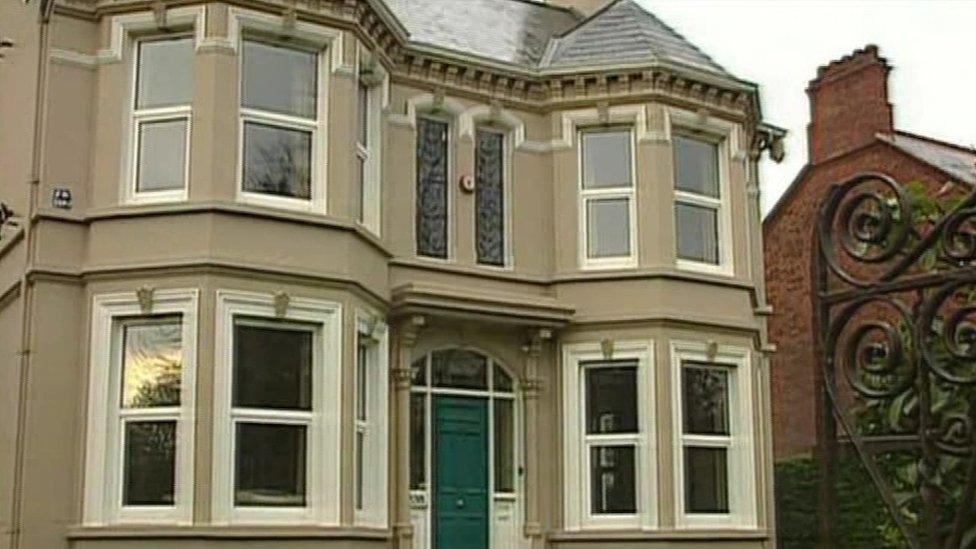Kincora: Sex abuse victims failed by police, ombudsman says
- Published
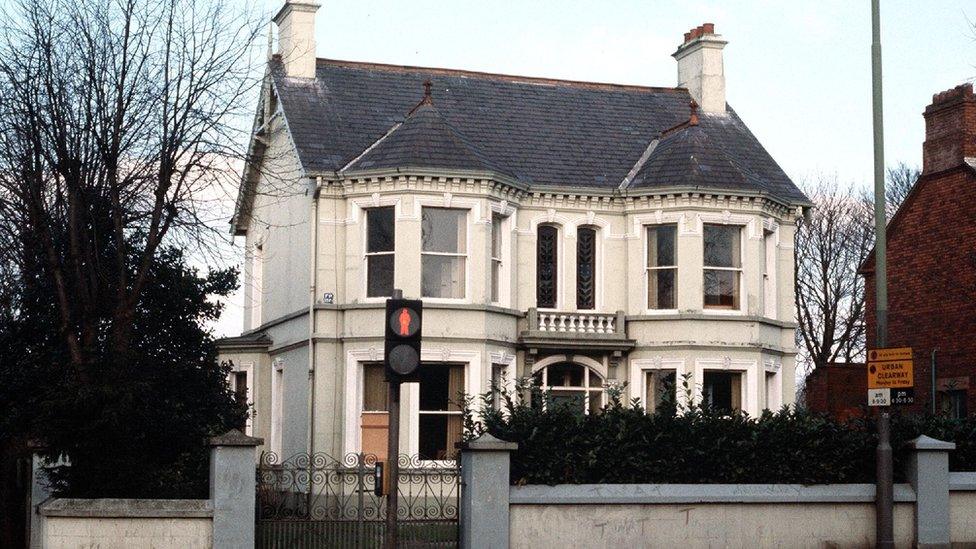
Kincora Boys' Home in east Belfast closed in 1980
Complaints made about the failure of police to investigate allegations of sexual abuse in a Belfast boys' home were "legitimate and justified", the Police Ombudsman has found.
Marie Anderson said some police officers had "failed in their duty to the victims" of Kincora Boys' Home.
But she said "systemic failings" had prevented police from being aware of complaints made to the authorities.
The Police Service of Northern Ireland has offered an apology to the victims.
At least 29 boys were abused at Kincora Boys' Home from the 1950s to the 1980s.
William McGrath, Raymond Semple and Joseph Mains, who were senior care staff at Kincora, were jailed in 1981 for abusing 11 boys.
The three men have since died.
The complaints by former residents of Kincora were made to the ombudsman's office between 2014 and 2017.
On 20 January 2017, the Historical Institutional Abuse (HIA) Inquiry concluded that the abuse which took place at Kincora Boys' Home was limited to the actions of the three staff members and did not take place with the collusion of the state or intelligence services.
In a report published on Friday morning, Ms Anderson found former Royal Ulster Constabulary (RUC) officers "did not act" on information provided to them from 1973 to 1976.
"The boys who were sent to Kincora were vulnerable children," she said on Friday.
"They were placed in the care of the state where they ought to have been safe and protected.
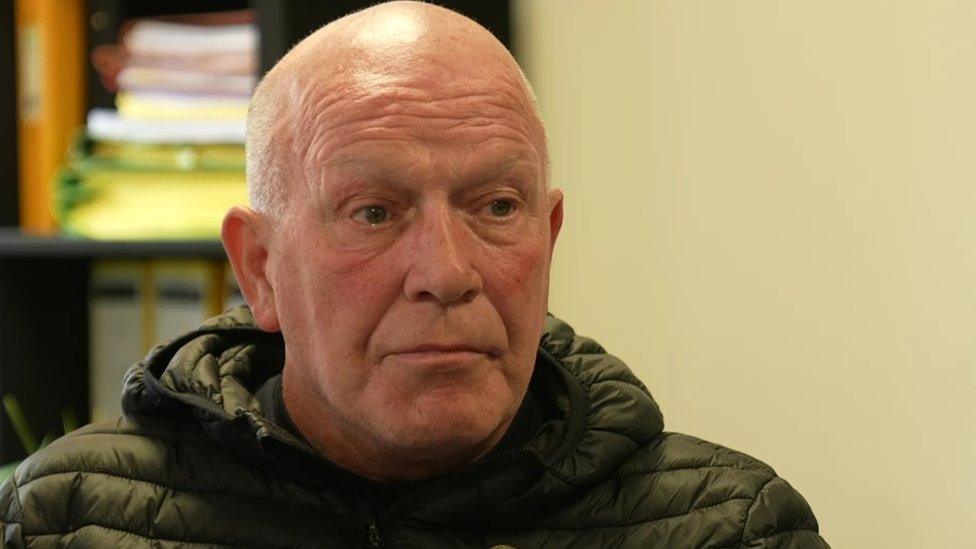
Gary Hoy says he has "mixed feelings" about the ombudsman's findings
"When boys complained about the abuse they experienced there is evidence that their accounts were ignored or not taken seriously or were not adequately investigated by the Belfast Welfare Authority or the Eastern Health and Social Services Board.
"Complaints were not referred to the police."
The ombudsman said a "convoluted complaints system" had resulted in police not being aware of all instances of sexual abuse at the home.
"However, I have also identified occasions when police officers did not act appropriately on the information that had been provided to them and intelligence they had received," she wrote.
According to the report, the majority of RUC officers referred to in the investigation had since died or were not able to assist in the investigation due to ill health.
Chief Superintendent Anthony McNally said the Police Service of Northern Ireland "fully accepts" the ombudsman's findings.
"Police process of investigation into child sexual abuse in the 1970s and 1980s was radically different to that of today," he said.
"Sexual offences carried out against anyone in the past can still be, and will be, robustly investigated and where appropriate a prosecution pursued."
'Tip of the iceberg'
Gary Hoy was a victim of abuse during his time at Kincora Boys' Home.
He told BBC News NI that he had "mixed feelings" about the ombudsman's report.
"I didn't need to see that report to know what the truth was but it's out now," he said.
Mr Hoy said the abuse he suffered at Kincora led him "off the rails" with no hope for the future.
"All the thoughts, whatever's in my head, never leave me," he added.
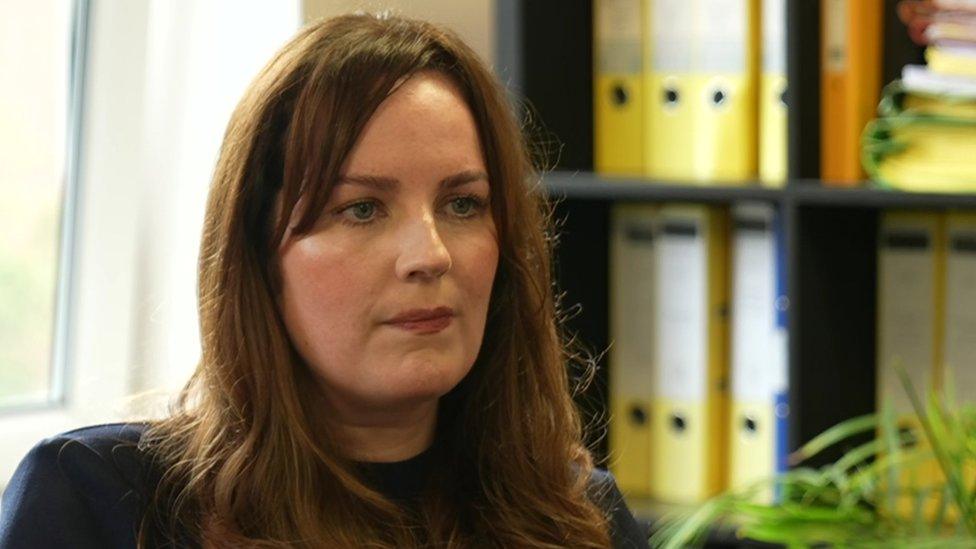
Claire McKeegan says victims must bring their cases to the courts to get justice
Mr Hoy's solicitor Claire McKeegan said the report was "the tip of the iceberg".
"It vindicates what these survivors of abuse have been saying for decades," she said.
"What has to happen now is they bring their cases against the courts and get justice."
Ms McKeegan added: "There is so much more that has not come out regarding Kincora and the truth has been suppressed for decades in favour of protecting those at the top who covered up this scandal.
"Those boys were at their most vulnerable - they were reporting to social workers, their lifeline; they were reporting to police.
"They were crying out for help and no-one listened - no-one believed them in favour of those who were in paid, trusted positions to care for them and they were being abused by these men."
"Had steps been taking at the appropriate time by the police many, many young boys could have been saved from a lifetime of trauma."
Related topics
- Published8 April 2016
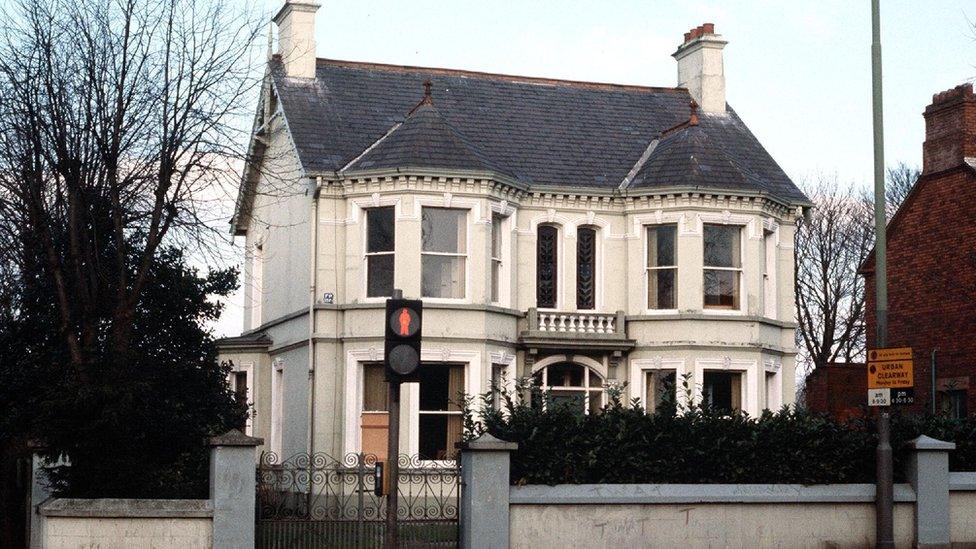
- Published8 April 2016
